Graphic:
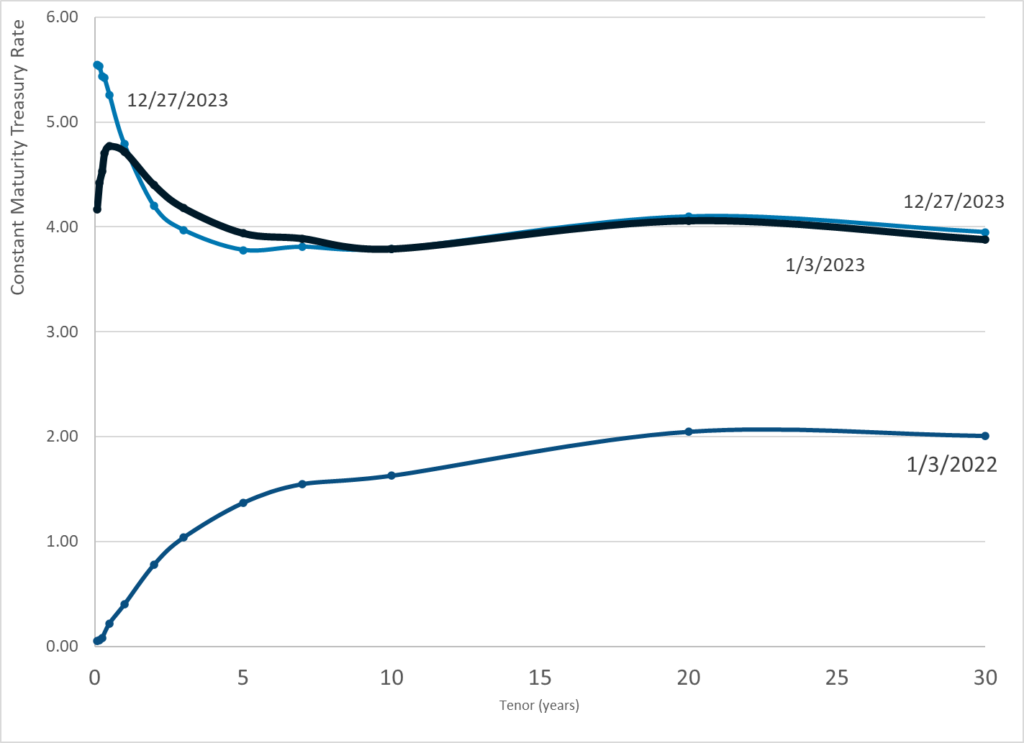
Publication Date: 27 Dec 2023
Publication Site: Treasury Dept
All about risk
Graphic:

Publication Date: 27 Dec 2023
Publication Site: Treasury Dept
Graphic:
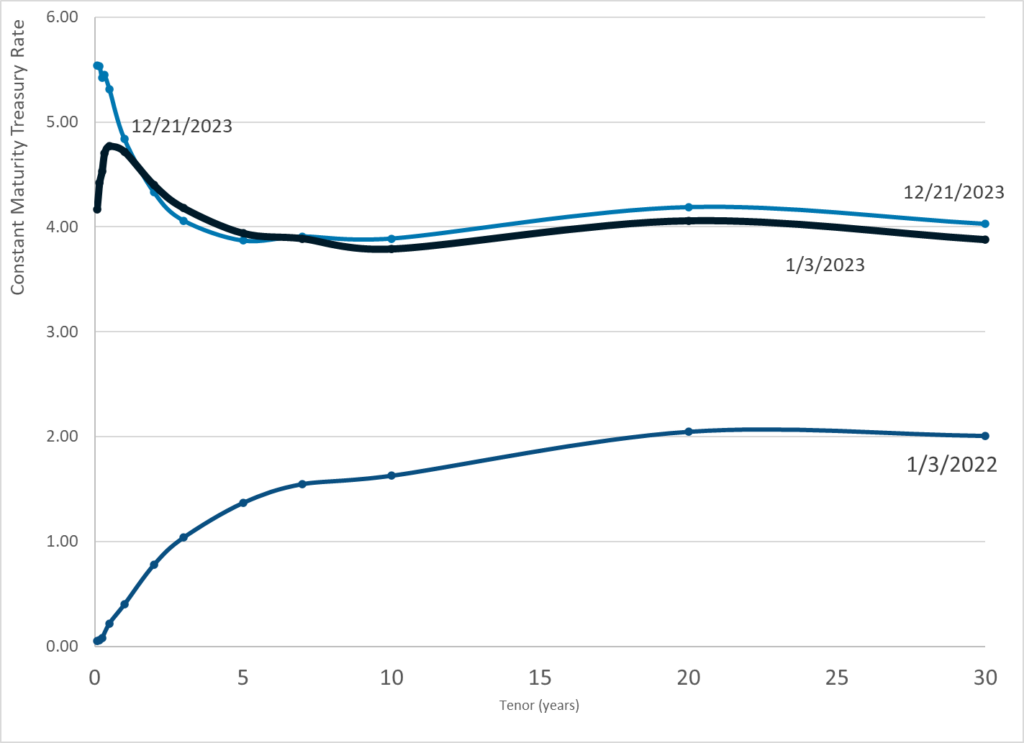
Publication Date: 21 Dec 2023
Publication Site: Treasury Dept
Link: https://govmoneynews.com/bills-blog/f/is-ed-kanes-gathering-crisis-still-gathering-steam
Excerpt:
Back in 1985, Ed Kane penned a prophetic volume identifying a blooming mess in financial markets. His book, The Gathering Crisis in Federal Deposit Insurance, reliably warned of taxpayer exposure to losses ultimately unleashed in the savings and loan crisis.
Cycles of ensuing regulatory reforms, crises and scandals have only reinforced the timeliness of the lessons that Kane offered us decades ago. Those lessons became particularly poignant in light of the failure of Silicon Valley Bank and several other large banks earlier this year.
Kane’s 1980s warnings remain worthy of scrutiny and reflection, and underscore questions whether industry and regulatory reforms have simply left us on the edge of another precipice. The financial conditions of the FDIC and the Federal Reserve – and their implications for the U.S. Treasury and American taxpayers – deserve close scrutiny, as well as recommendations for fundamental reform.
….
“In an economic environment in which deposit institutions are highly levered and entering new businesses every day and in which interest rates are highly volatile, systematically mispricing deposit insurance guarantees encourages deposit institution managers to position their firms on the edge of financial disaster. Metaphorically, deposit-insurance authorities are paying deposit-institution managers to overload the deposit-insurance jalopy, to drive it too fast, and even to break dance on its hood as it careens through interest rate mountains and over back-country roads. Reformers’ ultimate goals must be to confront institutions whose risk-taking imposes socially unacceptable risks on its federal guarantors with a combination of reduced coverages and increased fees sufficient to move them to adopt safer modes of operation.” (p. 147)
“Of course, just how safe, reliable, and comfortable a ride the nation enjoys depends also on the macroeconomic policies that the government follows. If Congress could bring government spending under long-run control, monetary policy would not have to push interest rates over so wide a cycle. Reducing the volatility of interest rates would relieve the car’s drivers of the need to take it over quite so dangerous a set of roads.” (p. 165)
Author(s): Bill Bergman
Publication Date: 20 Dec 2023
Publication Site: Bill’s Blog at GovMoneyNews
Excerpt:
planadvisor.com reports:
Department of Labor Inspector General Larry Turner issued a semi-annual report Tuesday arguing that the Employee Benefit Security Administration lacks both the resources and authority to fulfill its mandate to employee benefit plans. The report particularly emphasized EBSA’s limited authority to conduct thorough audits of workplace retirement plans.
My takeaways from the report:
The OIG remains concerned about the Employee Benefits Security Administration’s (EBSA) ability to protect the integrity of pension, health, and other benefit plans of about 153 million workers, retirees, and their families under the Employee Retirement Income Security Act of 1974 (ERISA). In particular, the OIG is concerned about the statutory limitations on EBSA’s oversight authority and inadequate resources to conduct compliance and enforcement. A decades-long challenge to EBSA’s compliance program, ERISA provisions allow billions of dollars in pension assets to escape full audit scrutiny. The act generally requires every employee benefit plan with more than 100 participants to obtain an audit of the plan’s financial statements each year. However, an exemption in the law allowed auditors to perform “limited-scope audits.” These audits excluded pension plan assets already certified by certain banks or insurance carriers and provided little to no confirmation regarding the actual existence or value of the assets. (page 23)
Author(s): John Bury
Publication Date: 6 Dec 2023
Publication Site: burypensions
Link: https://govmoneynews.com/bills-blog/f/is-there-a-pecking-order-theory-for-us-government-debt
Video:

Excerpt:
I got a great question from a finance student today, asking whether the “pecking order” theory of corporate capital structure could be applied to the government. OK, let’s think this out. Who comes first, in the pecking order?
Author(s): Bill Bergman
Publication Date: 6 Dec 2023
Publication Site: GovMoneyNews, Bill’s Blog
Graphic:
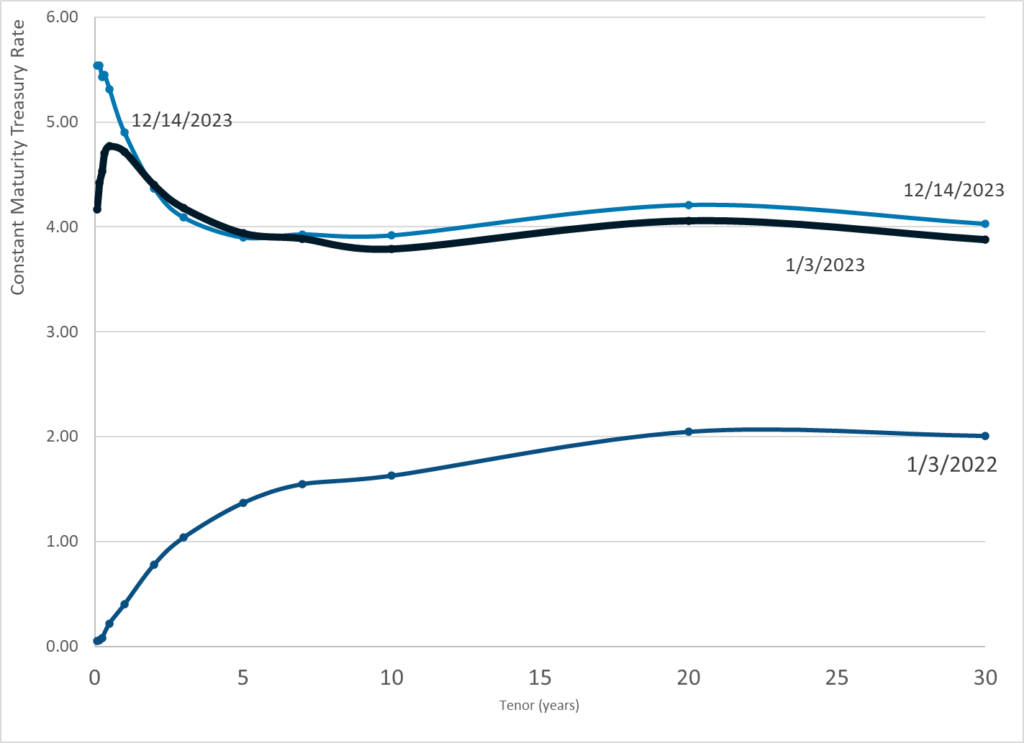
Publication Date: 14 Dec 2023
Publication Site: Treasury Dept
Graphic:
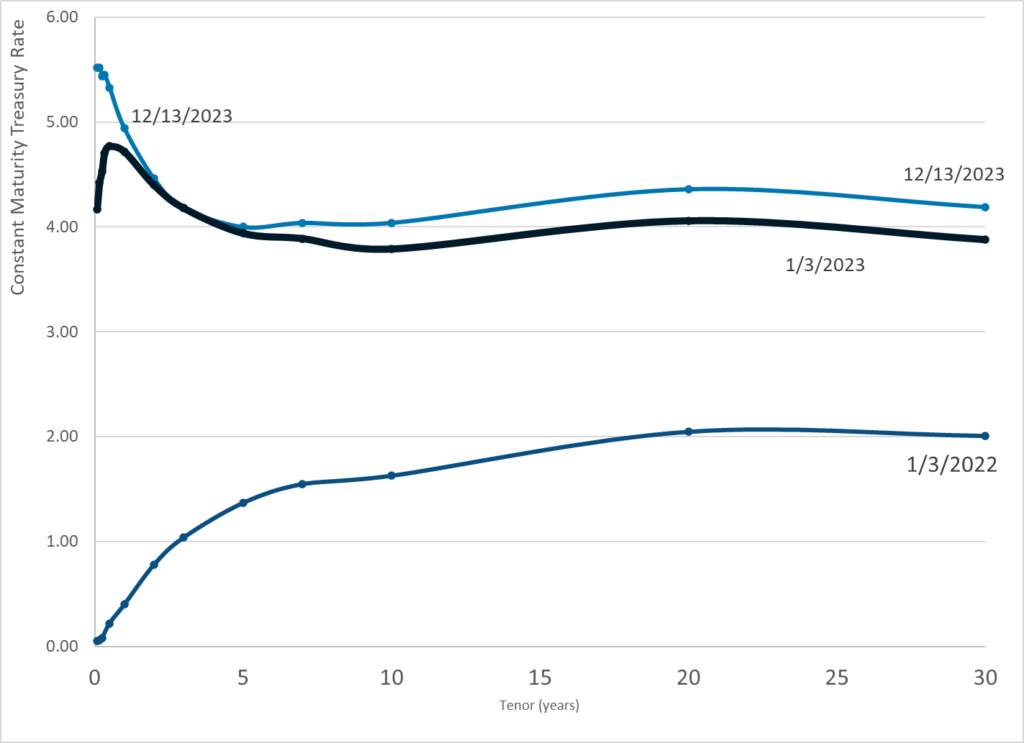
Publication Date: 13 Dec 2023
Publication Site: Treasury Dept
Graphic:
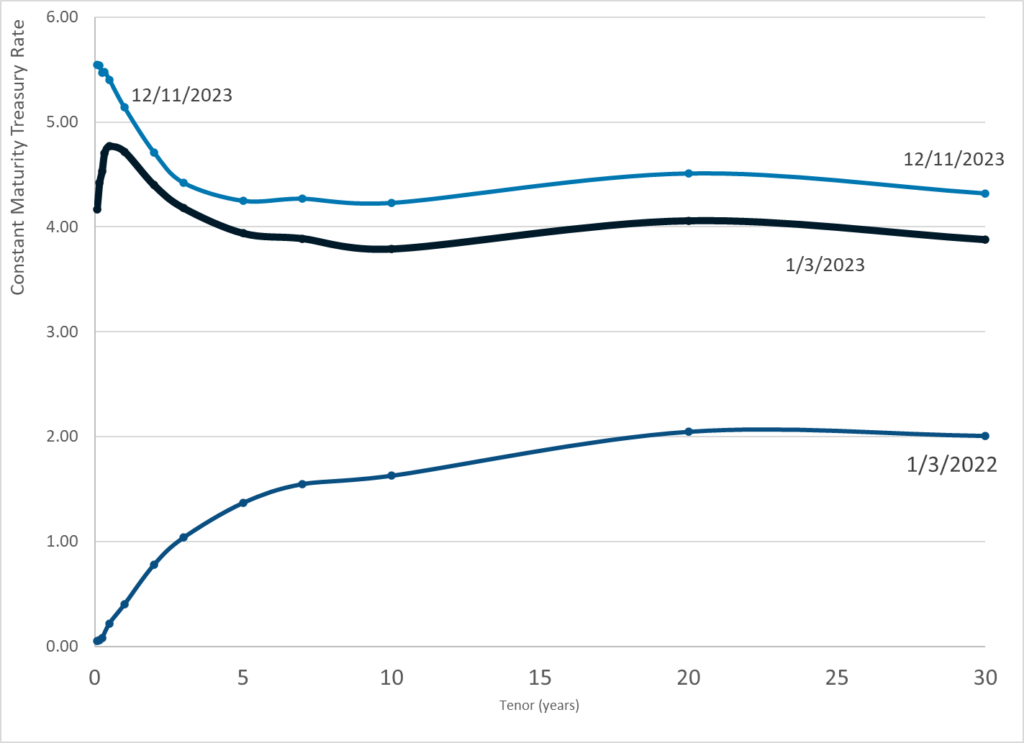
Publication Date: 11 Dec 2023
Publication Site: Treasury Dept
Graphic:

Publication Date: 8 Dec 2023
Publication Site: Treasury Dept
Graphic:

Publication Date: 6 Dec 2023
Publication Site: Treasury Department
Graphic:
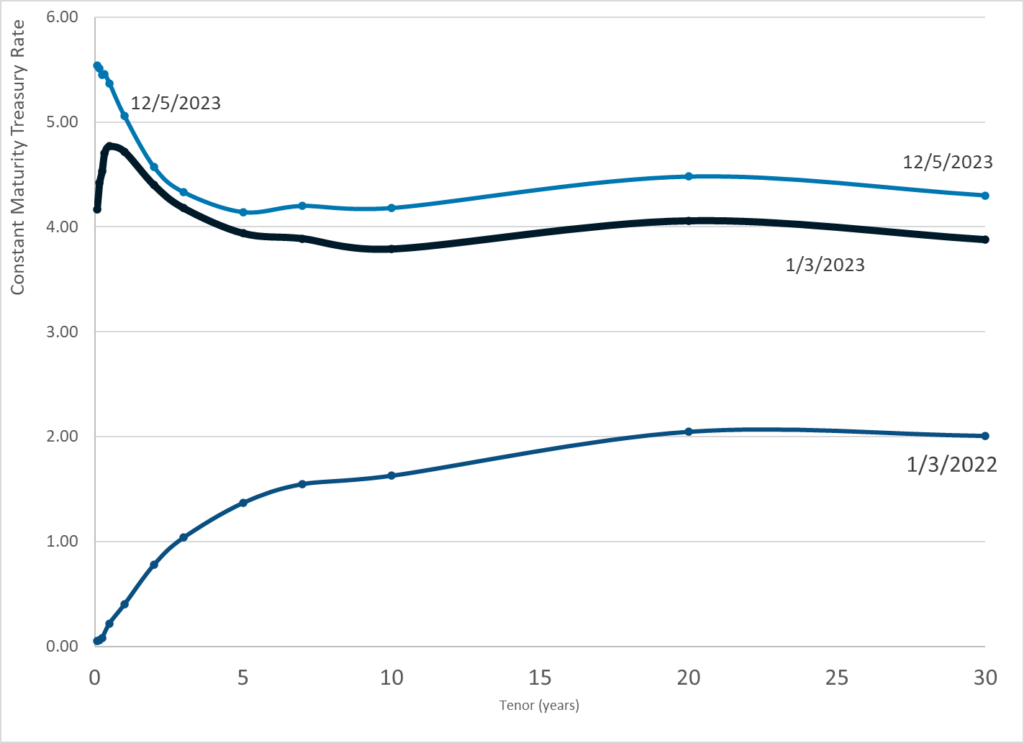
Publication Date: 5 Dec 2023
Publication Site: Treasury Dept
Excerpt:
The federal government has launched an investigation into Florida’s largest home insurance company.
Citizens Insurance, the governor, and other state leaders received a letter informing them that a Senate budget committee is looking into the state-run company.
Here’s why a Senate budget committee is looking into the company.
Citizens insure $586 billion worth of property, and they have just over $15 billion in their reserves to pay out on claims. If a major hurricane hit the state, they could be short over $571 billion, leaving everyone in the state on the hook to pay the shortfall.
The letter from the Senate committee investigating the state backed company expresses concern it may be unable to cover its losses. A claim the governor confirmed while visiting Fort Myers last year.
….
Mark Friedlander with the Insurance Information Institute said a private insurer would not be allowed to operate in the State of Florida with those financial dynamics.
Seven private companies went insolvent in the last year and a half in Florida.
“Citizens, unlike a private insurer, could never go insolvent,” Friedlander noted.
That’s because the state could initiate a hurricane tax to cover its costs which would require everyone who owns property or a car to pay a hurricane tax.
Author(s): Dave Elias
Publication Date: 4 Dec 2023
Publication Site: NBC 2, Florida Weekly